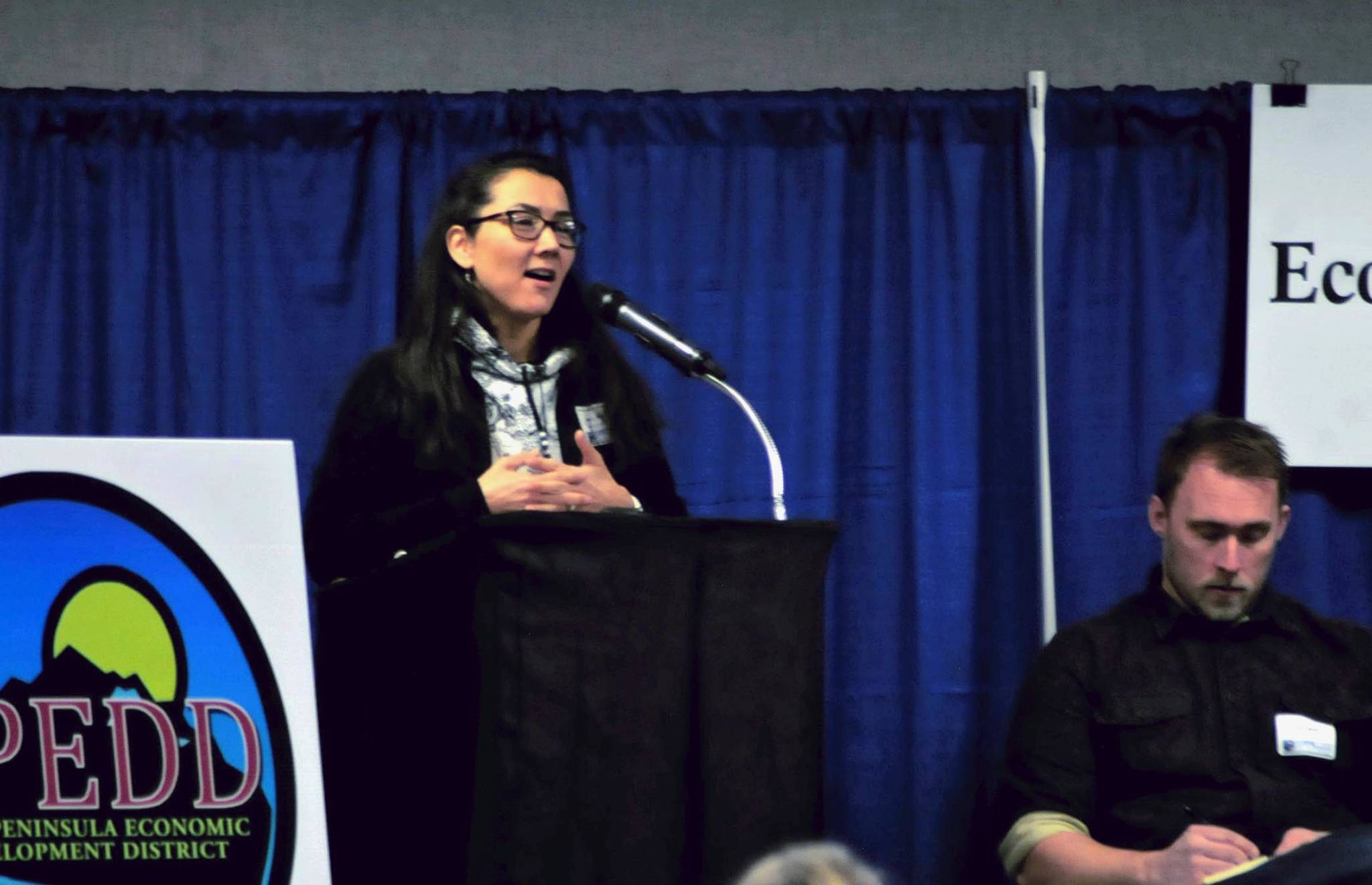The Alaska Humanities Forum is trying to cool some of the heated tension between salmon fishermen in the state.
The nonprofit, which operates a number of arts and cultural programs throughout the state, launched the Alaska Salmon Fellows program in 2016. The inaugural group of 16 Alaskans includes people from a variety of regions and backgrounds, with the hopes of starting a constructive conversation about salmon management and culture in the state.
Salmon politics in Alaska, particularly in Southcentral Alaska, are notoriously rife with conflict. Through gatherings around the state, online meetings, presentations and projects, the group of fellows is meant to help find solutions to some of that conflict, said Jennifer Gibbins, the leadership program director for the Alaska Humanities Forum.
“As we all know, salmon is really the keystone to much of our culture,” Gibbins said at the Kenai Peninsula Economic Development District’s Industry Outlook Forum on Wednesday. “It has to do with cultures, economies, the environment. It also can be a topic that is a great source of conflict.”
For former legislator and current lobbyist for the City of Bethel Mary Sattler Peltola, who has fished both commercially and for subsistence, it’s a different approach to the politics of salmon.
“Politics is not new to me, fishing is not new to me, but the group that has been compiled … really is a good cross section of the state,” she said at the forum. “There isn’t an ulterior motive, there isn’t a hidden agenda.”
Bringing people together from across the state allows people to share information about their own fisheries with others around the state, who may not know much about other regions’ fisheries. The slate of fellows includes people from communities like Tok and Hooper Bay as well as Juneau and Fairbanks, and with experience in processing, angling, commercial fishing and subsistence fishing.
“My experience with fish meetings is usually I’m so angry or so upset that it’s very hard for me to listen and learn,” Peltola said. “With the salmon fellows, it’s a very different dynamic. We’re not in a room where there’s intensity or aggression or people being on any part of the stages of grief over salmon.”
There are also a variety of perspectives on development and conservation. Ben Mohr, one of the fellows, has a long history working on development projects in Alaska, from the Pebble Mine to fishery access issues under former governor Sean Parnell. Having people involved in the natural resource development industries — which frequently interact with salmon streams in Alaska — is important to the conversations within the Salmon Fellows program, he said.
“As much as I love the fishery, my background is in mining, and my background is in resource development,” he said. “I want to see all of those resources brought together and shared in this state. Not one over the other, but how do we do this together? We have to have those conversations. We need folks who consider not only the ecology but the human environment, the economic environment, and all the other things that go into keeping us happy, healthy Alaskans.”
Salmon fishing is a driving industry in Alaska, both in the commercial sector and sportfishing. On the Kenai Peninsula, commercial fishermen in Upper Cook Inlet reeled in $23.7 million worth of salmon in 2017 and Lower Cook Inlet fishermen brought in about $4.5 million in common property salmon and $1.5 million in hatchery cost recovery salmon, according to Alaska Department of Fish and Game annual management reports. Statewide, commercial fishermen brought in about $678.8 million in salmon, according to Fish and Game.
Sportfishing is also a massive industry statewide, bringing thousands of people to the Kenai Peninsula specifically each year, but is more difficult to economically quantify because it is interconnected with tourism. In 2016, 751,050 people bought a sport fishing or hunting license from the state, according to Fish and Game license statistics.
During his work with Parnell’s administration, Mohr said he heard conversations about conflicts over salmon happening in a number of different communities. The Salmon Fellows program is an extension of those conversations, he said.
“There’s a lot of value to us having these conversations,” he said. “What the Humanities Forum has done with the Salmon Fellows is taking these conversations that are already happening in communities like Sitka, like Kenai and Soldotna, and making it a statewide effort.”
The Salmon Fellows is funded by a $1.2 million grant from the Moore Foundation, a California-based environmental nonprofit with an arm specifically focused on wild salmon conservation, and will extend over three years. Fellows receive $10,000 each to cover travel and expenses for their projects.
Peltola gave the example of a project she is working on to foster a model for open discussion in Yup’ik communities around salmon issues.
“My motivation is to have a low-intensity place were we can talk about maximum sustained yield, conservation issues around king salmon, because all of you know what a lightning-rod issue Chinook are,” she said. “…Each of us has a project that will hopefully go beyond the life of this cohort of Salmon Fellows.”
Gibbins said the Humanities Forum is currently accepting applications for the next class of fellows. Applications are open until Jan. 31.
Reach Elizabeth Earl at elizabeth.earl@peninsulaclarion.com.

